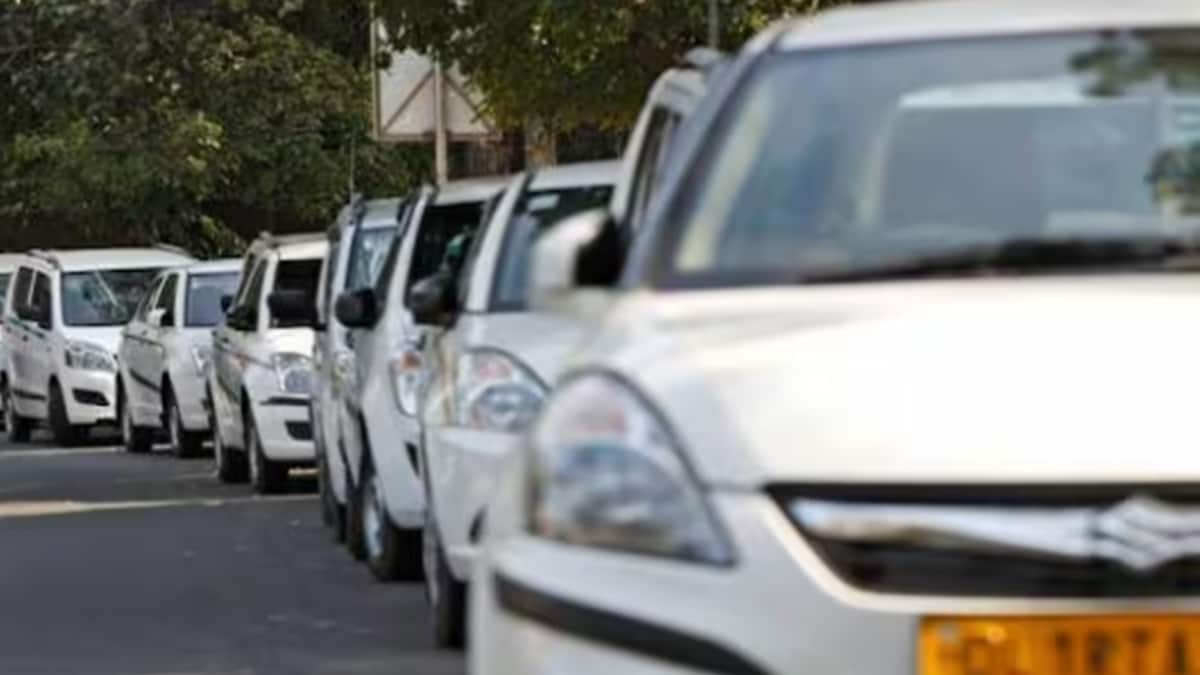70% App-based Cab Drivers Can’t Meet Expenses Despite Working 60 Hours In Week: Report

[ad_1]

The financial strain was most acutely felt by cab drivers operating in larger metropolitan areas due to an oversupply of cars. (Representative image)
The report highlights challenges that lead to poor financial health, job security, and mental and physical well-being amongst app-based cab drivers
Entitled Solutions, a financial solutions platform for blue-collar workers, has released a report that details the financial challenges faced by cab drivers in India. The report, which surveyed over 1200 cab drivers in three cities across the country, highlighted that an overwhelming percentage (70%) of the respondents reported financial distress despite working over 60 hours every week.
The report also highlighted how this financial insecurity and severe overwork led to multiple related issues, including poor physical/mental well-being, self-exploitation, job insecurity, and debt.
Health Issues
More than 60% of drivers reported health issues due to overwork while 50% said they struggled to support their families financially, perpetuating a vicious cycle of debt and instability. The financial strain was most acutely felt by cab drivers operating in larger metropolitan areas due to an oversupply of cars, which drove wages down; in some cities, drivers reported earnings as low as Rs 250 per hour after expenses.
Three-quarters (75%) of drivers surveyed by Entitled Solutions indicated feeling exploited by unilateral and discriminatory employment terms employed by platform companies, resulting in financial precarity and job insecurity.
Uncompensated work caused by dry runs, long pick-ups, traffic delays, idle waiting, and customer cancellations was highlighted as one of the key causes exacerbating the financial woes for cab drivers.
Escalating fuel prices, which have surged by 20% over the past year, along with high vehicle maintenance costs and hefty platform commissions (up to 30%), also severely diminish drivers’ net earnings.
An unexpected finding was the prevalence of arbitrary deactivations of driver IDs by platform companies, with around 30% of drivers claiming they had experienced sudden income loss without prior notice or due process.
Anshul Khurana, Co-founder and CEO, Entitled Solutions, said, “Over the past decade, gig jobs such as driving a cab have become extremely popular across India, thanks to both the growing digital penetration and the rise of cloud-based services marketplaces. However, this growth has also given rise to several issues unique to this workforce.”
“With this report, we wanted to map the depth and breadth of the various work-related issues that afflict cab drivers in India, as well as to present recommendations that might help address them in a structured manner. We would urge all stakeholders, including industry stakeholders and policymakers, to consider these crucial recommendations and work to create a fairer, more equitable, and more sustainable future for cab drivers,” Khurana added.
To combat these challenges and enhance the financial stability and better working conditions for cab drivers, the report also proposed the following measures:
- Compensation for Uncompensated Work: Implementing compensation for dry runs, long pick-ups, idle time, and cancellations to boost drivers’ earnings by up to 20%.
- Standardised Rates: Enforcing standardised metered and commission rates, ensuring at least 80% of the fare goes to the driver.
- Transparent Contracts: Ensuring contracts are simple, understandable, and available in drivers’ native languages.
- Health and Safety: Mandating health insurance and safety measures, providing comprehensive benefits under the Code on Social Security 2020.
- Grievance Redressal: Establishing a clear grievance redressal mechanism for fair hearings before penal actions like ID deactivation.
- Regulate Working Hours: Implementing regulations on working hours and rest periods to prevent overwork, recommending a maximum of 10 hours per day.
[ad_2]
Source link




